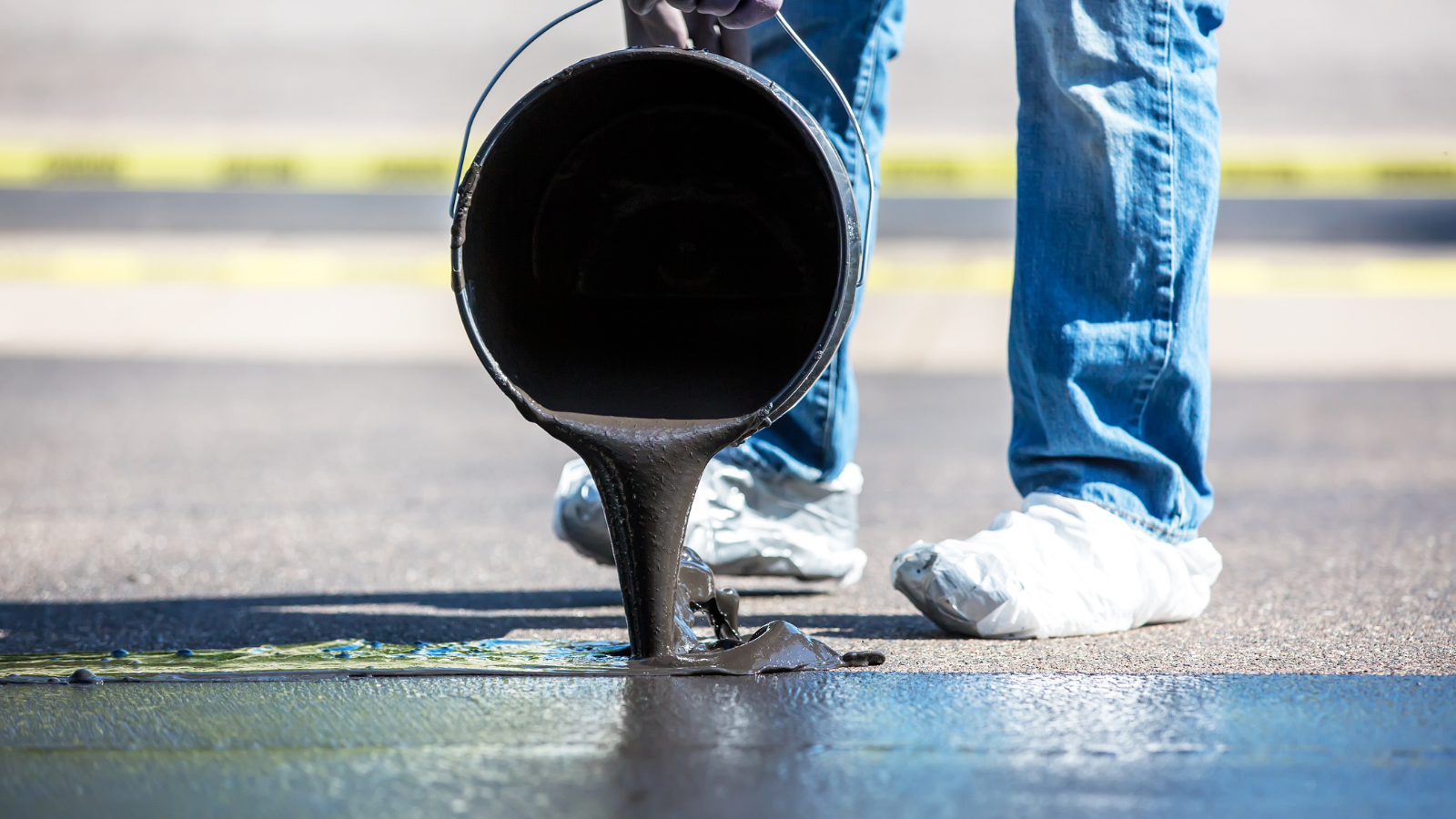Asphalt paving is essential for our modern infrastructure, giving us smooth and durable surfaces for roads, highways, and parking lots. Rigorous quality assurance and testing are crucial to ensure these pavements last and perform well. In this blog post, we’ll explore the critical aspects of asphalt quality testing, including the importance of material testing, mix design verification, and pavement performance evaluations. We’ll also look at how advanced testing technologies and methods enhance the accuracy and reliability of asphalt paving projects.
Finding the right firm for pavement upkeep can be a tough decision. Elizabeth Paving, the leading name in asphalt repair and resurfacing, can restore your asphalt parking lot, road, sidewalk, or other paved surfaces. For timely and budget-friendly service, contact Elizabeth Paving in New Jersey for your spring pavement maintenance needs.
What is the Quality Test for Asphalt?
Quality tests for asphalt are designed to assess the properties and performance of asphalt mixtures to make sure they adhere to project requirements and industry norms. Common tests include:
1. Asphalt Content Test: Measures the amount of asphalt binder in the mixture.
2. Gradation Test: Determines the particle size distribution of the aggregate.
3. Marshall Stability and Flow Test: Assesses the strength and flexibility of the asphalt mix.
4. Superpave Gyratory Compactor Test: Evaluate the compatibility and density of the asphalt mix.
5. Indirect Tensile Strength Test: Measures the resistance of asphalt to cracking.
Importance of Conducting Material Testing, Mix Design Verification, and Pavement Performance Evaluations
Material Testing
Material testing is crucial for ensuring that the components used in asphalt mixtures, such as aggregates and binders, meet the required specifications. This helps prevent premature failures and extend the life of the pavement. Proper material testing can identify potential issues before construction begins, saving time and resources.
Mix Design Verification
Verifying the mix design ensures that the proportions of asphalt binder, aggregates, and other additives are optimized for performance. A well-designed mix will exhibit the desired balance of strength, durability, flexibility, and resistance to environmental factors. Mix design verification helps achieve the right blend to withstand traffic loads and climatic conditions.
Pavement Performance Evaluations
Evaluating pavement performance involves assessing the constructed pavement to ensure it meets the expected quality and durability standards. This includes measuring surface texture, compaction, and load-bearing capacity. Performance evaluations help identify any deficiencies and implement corrective measures promptly.
Advanced Testing Technologies and Methodologies
Using advanced testing technologies makes asphalt testing more accurate and reliable. Tools like ground-penetrating radar (GPR), infrared thermography, and automated pavement condition surveys give detailed information about pavement conditions. These technologies allow us to monitor problems in real-time, quickly find and fix them immediately, improving the overall pavement quality.
Quality Control of Asphalt Plants
Quality control at asphalt plants involves monitoring and managing the production process to ensure the final product meets specified standards. This includes:
- Continuous Monitoring: Keeping track of temperature, moisture content, and material proportions during production.
- Routine Testing: Conducting regular tests on asphalt samples to verify compliance with mix design specifications.
- Process Adjustments: Making necessary adjustments to the production process based on test results to maintain consistent quality.
Why is Asphalt Testing Important?
Asphalt testing is crucial for several reasons:
- Ensuring Longevity: Proper testing helps create durable pavements that can withstand Cost Efficiency: Identifying and addressing issues early in construction can save significant repair and maintenance costs.
- Safety: Well-tested and constructed pavements provide safer driving surfaces, reducing the risk of accidents.
Purpose of the Asphalt Core Test
The asphalt core test involves extracting cylindrical samples from the pavement to assess its properties. The core test helps in evaluating:
- Thickness: Ensuring the pavement layer thickness meets design specifications.
- Density: Checking compaction and density to ensure structural integrity.
- Material Quality: Analyzing the composition and quality of the asphalt mix.
Tests for Compacted Asphalt Pavement
Several tests are conducted on compacted asphalt pavement to ensure its quality, including:
- Density Testing: Using nuclear density gauges or core sampling to measure compaction levels.
- Smoothness Testing: Evaluating the surface texture and smoothness with profilographs or straightedges.
- Skid Resistance Testing: Measuring the pavement’s ability to provide adequate traction.
- Permeability Testing: Assessing the pavement’s resistance to water infiltration.
FAQ
What is asphalt paving?
Asphalt paving involves laying down a mixture of asphalt binder and aggregates to create a smooth, durable surface for roads, parking lots, and other infrastructure.
How often should asphalt pavements be tested?
Regular testing should be conducted throughout the construction process and periodically during the pavement’s life to ensure ongoing quality and performance.
Can advanced testing technologies reduce the need for traditional tests?
While advanced technologies enhance accuracy and provide real-time data, they complement rather than replace traditional tests, offering a more comprehensive assessment of pavement quality.
What is the role of an asphalt plant in quality control?
Asphalt plants play a critical role in ensuring the quality of the asphalt mix by continuously monitoring production parameters and conducting routine tests to maintain consistency and compliance with specifications.
Conclusion
Quality assurance and testing in asphalt paving are essential for building vital, safe, affordable roads. We can meet industry standards and project goals by carefully testing materials, checking mix designs, and evaluating pavement performance. Advanced testing technologies make these processes even more accurate and reliable, ensuring our roads stay in excellent condition for years. We are able to build a more effective and secure transportation system by focusing on thorough testing and quality control.







